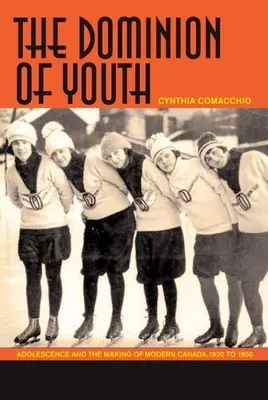Adolescence, like childhood, is more than a biologically defined life
stage: it is also a sociohistorical construction. The meaning and
experience of adolescence are reformulated according to societal needs,
evolving scientific precepts, and national aspirations relative to
historic conditions. Although adolescence was by no means a "discovery"
of the early twentieth century, it did assume an identifiably modern
form during the years between the Great War and 1950.
The Dominion of Youth: Adolescence and the Making of Modern Canada,
1920 to 1950 captures what it meant for young Canadians to inhabit this
liminal stage of life within the context of a young nation caught up in
the self-formation and historic transformation that would make modern
Canada. Because the young at this time were seen paradoxically as both
the hope of the nation and the source of its possible degeneration, new
policies and institutions were developed to deal with the "problem of
youth." This history considers how young Canadians made the transition
to adulthood during a period that was "developmental"--both for youth
and for a nation also working toward individuation. During the years
considered here, those who occupied this "dominion" of youth would see
their experiences more clearly demarcated by generation and culture than
ever before. With this book, Cynthia Comacchio offers the first detailed
study of adolescence in early-twentieth-century Canada and demonstrates
how young Canadians of the period became the nation's first modern
teenagers.

